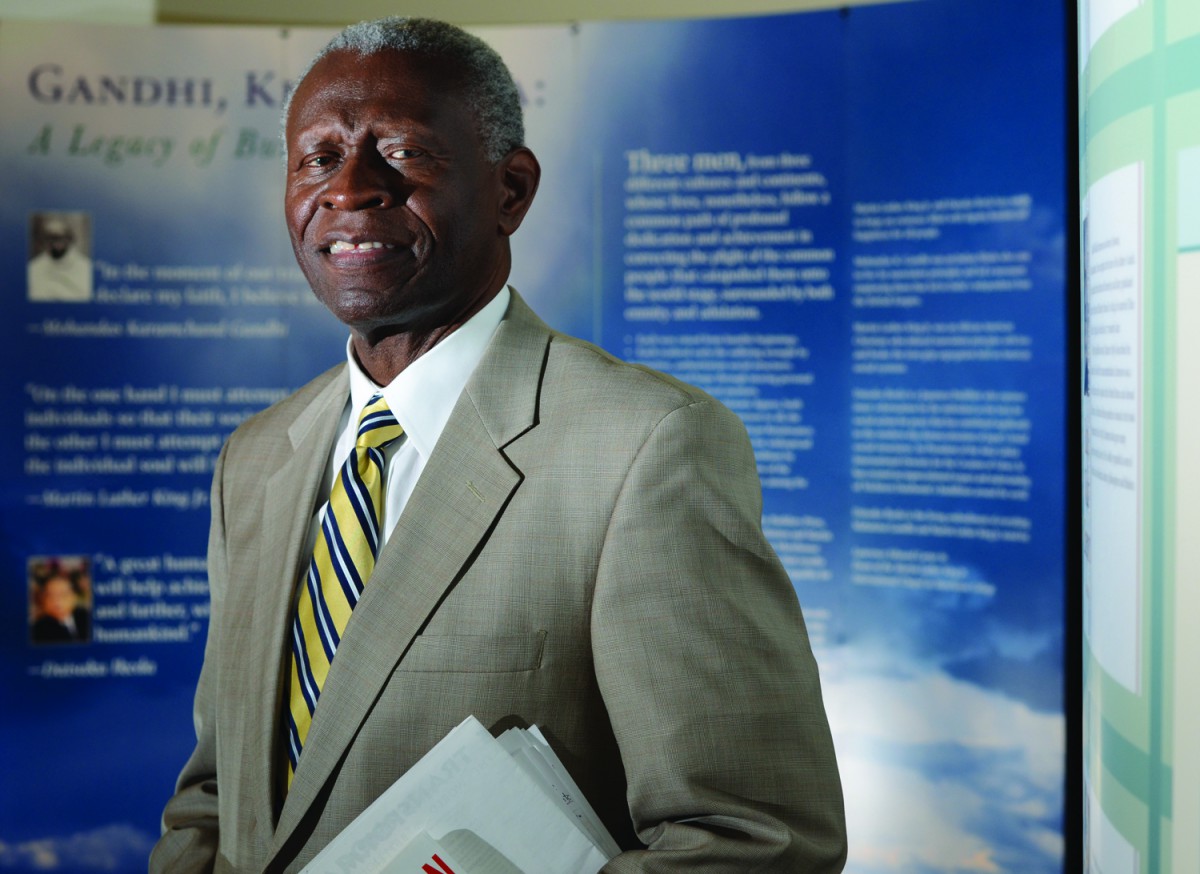As 10th grader Lawrence Carter was walking toward the front doors of the Oakley Baptist Church in his family’s usual Sunday morning ritual, he was halted by his Sunday school superintendent.
“You’re coming with me,” the man said.
Carter was startled at first, but agreed to go with him after confirming his mother had been informed. A short trip across town later, Carter found himself seated at the Union Grove Baptist Church, listening to Martin Luther King Jr. deliver the church’s anniversary sermon.
After the sermon, and considering joining the clergy himself, Carter asked to see the pastor’s office. The pastor obliged, informing Carter that the room was empty. As he entered the office and shut the door behind him, Carter was admiring the books stacked floor to ceiling when he realized he was not alone.
Watching from a chair in the corner was Martin Luther King Jr.
On that day, King personally asked Carter to consider attending Morehouse College, sparking in the young man a lifelong devotion to education. On March 20, Carter shared some of his greatest lessons with USF St. Petersburg as part of International Week.
Carter, who now holds multiple degrees, including a Ph.D. in pastoral psychology and counseling from Boston University, has focused much of his time highlighting the lives of Mahatma Gandhi, Martin Luther King, Jr. and Daisaku Ikeda since he first published a book about the trio in 2001. His trip to USFSP was part of “Gandhi, King, Ikeda. A Legacy of Creating Peace,” a traveling exhibit and prize presented by Morehouse College, where Carter now works as dean of the Martin Luther King International Chapel.
Gandhi, King and Ikeda—a writer, educator and peace activist who heads the lay Buddhist Sōka Gakkai International organization—shared a belief that a dedication to nonviolence can lead to “dignity, freedom and happiness for all people.”
“Nonviolence is not a strategy, it is a way of being in the world,” Carter said to a room full of students and community members in Harbor Hall. He related the case of a professor at Boston University who was able to change the entire atmosphere of a room just by showing up.
In the 1970s, the dean refused to end military recruitment on campus despite a majority of faculty and students clamoring for it. When one meeting grew particularly vicious, the professor—whose reverence at the university was well documented—slowly walked to the stage and respectfully put his support behind ending recruitment. Minutes later, the dean obliged and Boston University banned military recruitment on campus.
Carter compared the professor to Gandhi, who spent a whole year listening to those around him before he led the famous Salt March against British taxation.
“Listening is required for nonviolence,” Carter said, adding that the right to speak can be won by “hearing a person on several levels.”
Carter encouraged students to listen to their professors, but not to do the bare minimum by spitting back those same words on examinations and essays. He called that a “waste of academic cash” and “somebody else’s borrowed wisdom.” The changes that King, Gandhi and Ikeda brought forth started within themselves.
“You should ask yourself every day when you wake up, ‘how am I going to show up in the world today?’ You must set your attention,” he said. “…If you are not working on yourself, you are not getting an education.”
The “Gandhi, King, Ikeda. A Legacy of Creating Peace” exhibit will remain on display in Harbor Hall for the USFSP community and the public until March 29. Hours are 10 a.m. until 5 p.m.
Photo by Christopher Guinn



